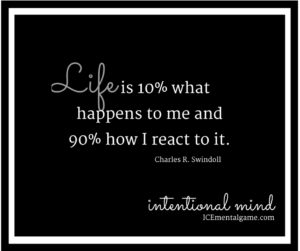In a perfect world skaters would be able to train year round with no interruption, improving every week. No injuries, no equipment problems, no losing ice to hockey teams.
Unfortunately, occasional interruptions in training happen, but skaters can use effective Mental Game Strategies to keep on improving despite the lack of actual physical practice on the ice.
Let’s use a common problem in a skater’s world today, boots. Skaters expect a lot from their equipment. Boots have to be strong to support multiple jump landings but also have to be flexible enough to support deep edges for intricate footwork and skating skills.
Have you ever outgrown your boots mid-season, or had your boots break down sooner than you anticipated?
You’ve stretched and stretched the skate as much as you can. You checked all your sources to see if they have your size available. No luck. Now you can only manage to skate one session a day or maybe no sessions because your boots are too painful to wear.
You need a new pair of boots, but there is a 4-6 week wait. Being off the ice is the skater’s least favorite place to be. After you whine and cry and complain, it’s time to pull yourself together and get busy!
By changing the way you look at your situation, you can turn a problem into an opportunity.
You can think this way: I have a competition 2 months from now and I will be off the ice for 4-6 weeks. Why does this always happen to me? It’s not fair. I am going to bomb.
I have a competition 2 months from now and I will be off the ice for 4-6 weeks. Why does this always happen to me? It’s not fair. I am going to bomb.
Or
This way :
I have 4-6 weeks, what can I do to become a better skater? (Make lemonade out of lemons)
Focus on what you can control
Take all that energy you spend whining and complaining about your problem, and put it to productive use.
Off Ice Training pays off on the ice:
Elite athletes make it a point to turn their weaknesses into strengths. It’s easy for skaters to work hard on the ice. It’s fun, and most skaters are strong in on-ice skills, but did you know that if you can do a skill off the ice, you will be much better able to do the skill on the ice? Ask your coach and your support team to identify areas you can work on to improve balance, core strength, flexibility and line extensions.
Use Mental Game Strategies for Training
Use this time off the ice to beef up your Mental Game. Do you want the extra edge to take your skating to the next level, but don’t know what’s missing? Athletes at the elite level most if not all skaters have the same skills on their best days. This is why you rarely see one skater win every single competition. The winner on any given day is the one who has the strongest Mental Game.
Use Visualization to keep working on your skills (jumps, spins, edgework) and program. Elite athletes who deliberately practice visualization while they are injured have found it useful to maintain or even improve their performance when they are back to work. In 2011 after his hometown rink was destroyed by a major earthquake, Olympic Champion Yuzuru Hanyu relied on visualization his jumps as a training technique.
If you want to start working on your mental game, here is a great introduction to a Mental Game Tool for Building and maintaining Confidence: Bust Confidence Myths.
Being off the ice allows you to work on things that can get neglected due to lack of time in a busy schedule. It is a great time to work on new skills or strengthen other skills you will be using on the ice. It is an awesome time to get ahead of the competition by committing to work on your mental game.
By the time you get back on the ice you will be an improved skater.
